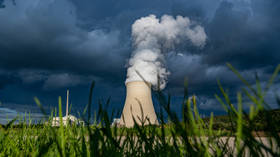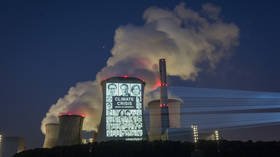Berlin may extend nuclear power use — minister

Germany may be forced to continue using two of its remaining three nuclear power plants due to the ongoing power supply crunch and potential shortages in electricity generation, Economy Minister Robert Habeck said on Tuesday.
“We are already in a situation now where the stress test says it could become necessary to use nuclear power for the security of the grid,” he said at a climate conference in Berlin.
Germany shut down half of its nuclear power plants in December 2021 as part of the country’s plan to phase out nuclear energy following the 2011 Fukushima nuclear disaster. Under the initial plan, Berlin intended to completely wind down atomic energy by the end of the current year, when the nation’s remaining three plants in Neckarwestheim, Essenbach and Emsland shut.
Earlier this month, German authorities agreed to keep two of the three plants on reserve beyond the end of this year, reversing a long-planned shutdown of the facilities.
The energy crisis across the EU has largely been caused by skyrocketing natural gas prices due to sanctions Western allies have imposed on Russia over the conflict in Ukraine.
In late August, Berlin approved a series of steps to reduce winter energy consumption, including limiting the use of lighting and heating in public buildings. The authorities have also encouraged citizens to save energy by all available means.
The German government has also pledged €67 billion ($66.9 billion) in funding to assist utility companies struggling to deal with surging energy prices. Last week, Berlin agreed to nationalise Uniper, the country’s largest natural gas importer as part of efforts to keep the industry afloat.
For more stories on economy & finance visit RT's business section














